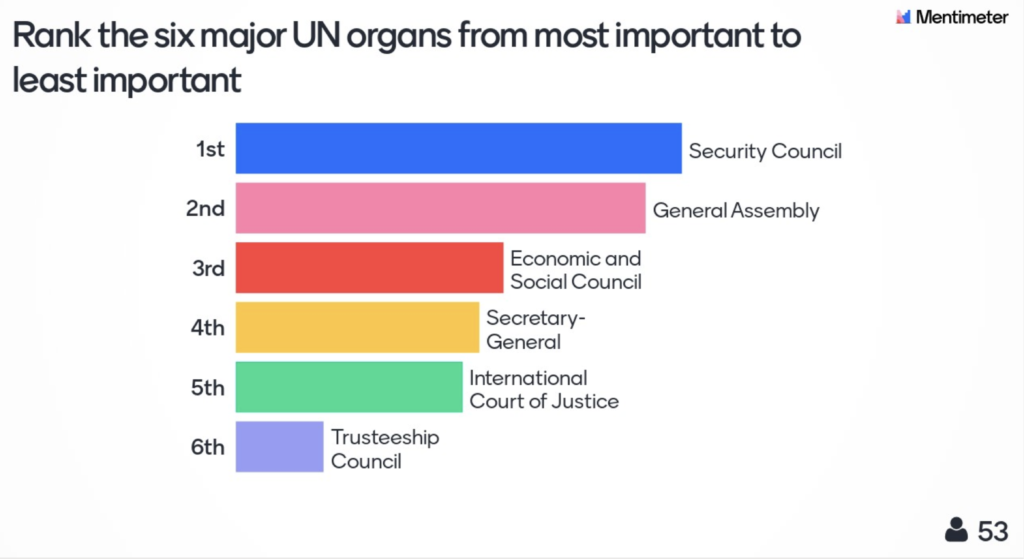With Semester 1 now over, the teaching team is finally able to breathe a collective sigh of relief. Not only did we manage to continue to deliver a highly engaging and interactive course, but our inboxes keep pinging with messages of appreciation and gratitude from students.
Leadership and Diplomacy (DIPL2000) is an interactive course from the Asia-Pacific College of Diplomacy which partnered with the Interactive Learning Project (iLEAP) to maintain and enhance student engagement and interactivity.
All courses have their own unique characteristics, and DIPL2000’s has been a reluctance to employ technology in the classroom. While students unreservedly accepted these quirks, they made migrating to remote teaching and learning a slightly more daunting task.
Interactivity with Assistance – DIPL2000’s interactive nature is embedded in every aspect of the course design —with students participating in a two-hour workshop plus a one-hour tutorial each week. Determined to maintain the course’s interactive nature, the teaching team threw themselves into finding technology that aligned with their pedagogy and intended learning goals. In addition to continuing classes in real-time over Zoom, we turned to Padlet, Mentimeter, Google Drive, and Kahoot!, as well as Zoom’s in-built functions to find remote ways to engage our students.

Importantly, we designed all our activities first, and then found online platforms that enabled us to implement them with minimal changes.
Where we felt that technology could not adequately replicate learning goals we scrapped the original lesson plan and redesigned it in a way that was meaningful in a remote environment. Given we had never heard of many of these tools at the beginning of the year, it was a constant learning experience, with copious experimenting through trial and error.
Communication & Community – Leaping into the unknown like this could have been a complete disaster, however we were very open with our students, communicating our intentions, reasoning, and fallibility, to not only ensure the switch to remote learning was working, but to seek suggestions on how to provide the best possible learning experience under the circumstances.
While we sought to provide our students with stability, we noticed a drastic increase in mental health and wellbeing issues. To combat isolation and build support networks, we created the Cocktail Circuit, a separate discussion forum for students to take ownership of. Through this, we arranged several catch ups where students socialised with the teaching team and classmates through trivia, drinks, and general discussions. Students found these valuable in building a sense of community, using social learning to help get each other through the semester.
Stronger for the Experience – Despite being an unexpectedly anomalous semester, we have emerged stronger for the experience. Remote DIPL2000 would have looked very different without the teaching team’s incredible teamwork, with the tutors, who not only threw themselves into the course, but invested significant time behind the scenes. Constant communication enabled effective co-facilitation, making tutorials and large-group workshops feasible online.
Looking ahead, we intend to incorporate many of the tools, techniques, and lessons from this semester into next.

While the rapid migration didn’t give us much time to plan, we drew inspiration from the professional development we had all received via the Principles of Tutoring and Demonstrating program, and guidance from the iLEAP team – both part of the Centre for Learning and Teaching – which has an invaluable role to play in supporting ANU through current circumstances, both in relation to skills training for online facilitation, and course design to enhance interactivity.
July 2020
Bhavani Kannan is an Education Support Specialist in the Continuing Education team – one of three teams within the ANU Centre for Learning and Teaching (CLT).

